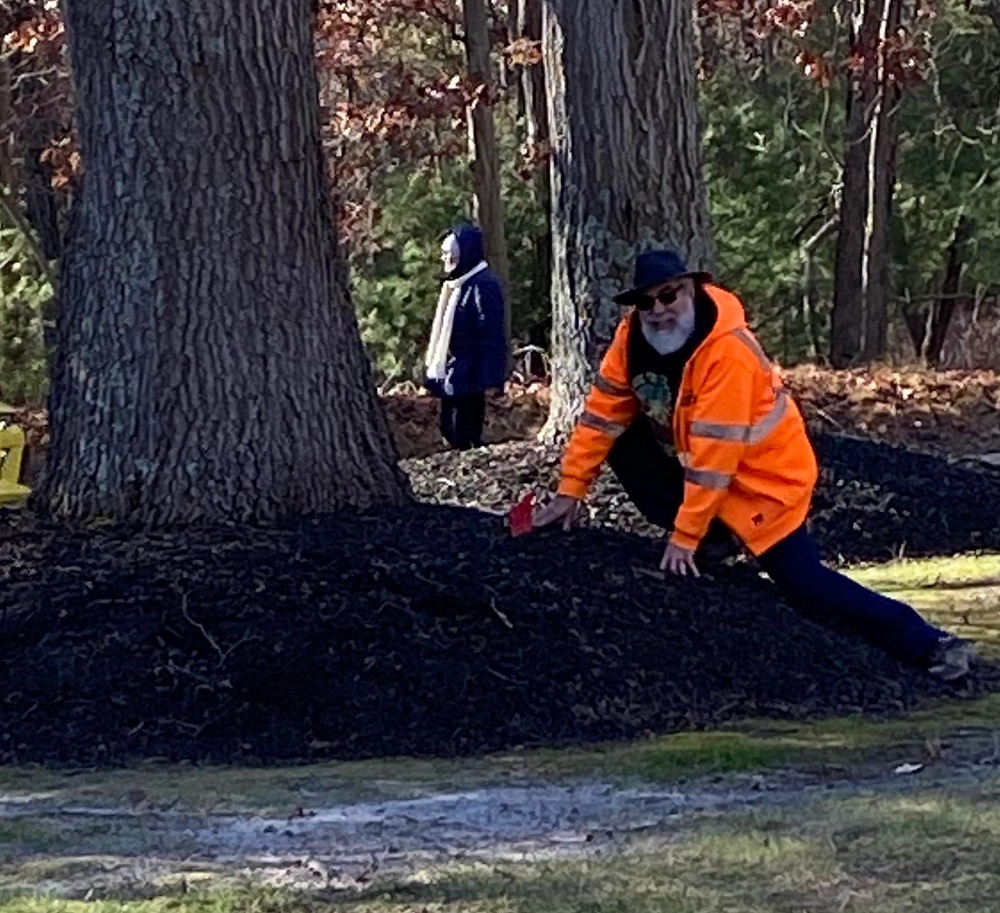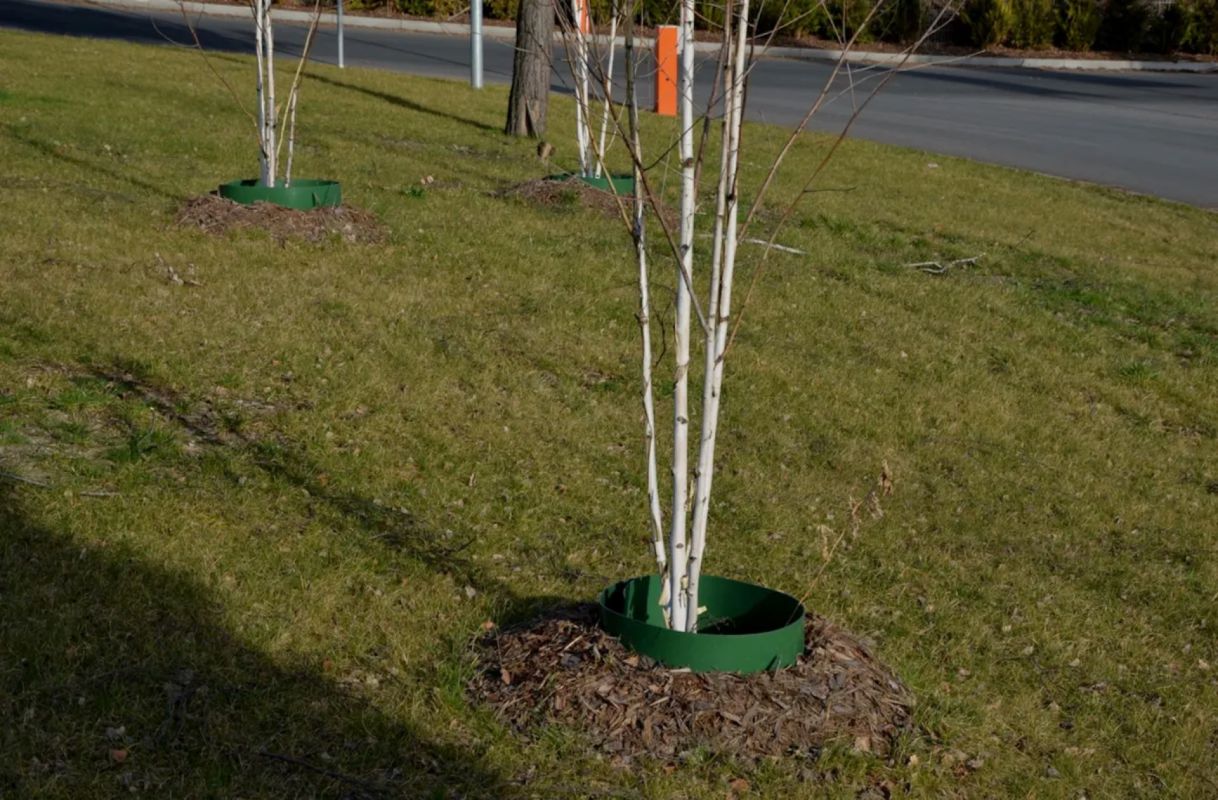A Reddit user and certified arborist posted a photo of a little-known but dangerous landscaping trend, nicknamed "mulch volcanoes" — large piles of mulch that smother and slowly kill trees.
"Visited my mom's senior citizen's center in NJ, and saw over 30 trees with the biggest darn volcano mulch piles I've ever seen," the Redditor captioned a photo in the subreddit r/arborists.

"These are indeed mulch, and not landscaped berms," he continued. The confusion is understandable — the mulch piles appear as wide as he is tall and at least a foot off the ground.
The practice of volcano mulching, or adding an enormous mound of mulch to the base of a tree, is common. You've probably seen hundreds of mulch volcanoes without realizing it. But these were "world champion mulch volcanoes," the arborist wrote.
"Wow," one commenter wrote, "I'm morbidly impressed."
Given how common they are, it's surprising to learn that mulch volcanoes are not only ineffective but downright dangerous to trees. While mulch is generally beneficial to soil, providing enriching nutrients and minerals, volcanoes are simply too dense to be effective. Instead, they damage a tree's bark, putting stress on the tree and weakening its defense systems against pests and other threats.
Excessive mulch also causes a tree to grow new roots, since its preexisting roots become buried beneath too much material and stop absorbing oxygen. Unfortunately, those new roots tend to either become dehydrated and die as the mulch degrades over time — or they wrap tightly around the tree trunk as they search for purchase around the steeply sloped sides of the volcano. This ends up girdling the tree, effectively causing it to auto-asphyxiate. Finally, the installation of mulch volcanoes is often accompanied by the digging of a "tree moat" in a large circle around the tree, which tends to sever roots.
Yet despite these dangers, gardeners, arborists, and landscapers — like the ones at the senior citizen's center — continue to utilize the practice. "The mulch volcano has no relationship to the needs of the tree," reported the Washington Post.
Instead, arborists recommend mulching the soil around the tree, leaving its roots plenty of room to grow and breathe. And if you're looking for an even more cost-effective tree-keeping trick, skip the bagged mulch entirely and turn your leaves into a natural compost to use instead.
Join our free newsletter for easy tips to save more, waste less, and help yourself while helping the planet.









